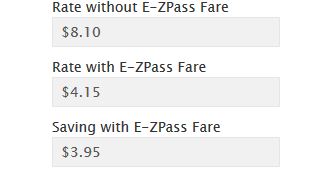|
So I am driving to Wooster, OH for a romantic weekend getaway with my wife and want to estimate the tolls on I-90/I-80 from Porter, IN. On the E-ZPass website, I see that the fare from Portage to Eastpoint is $8.10, but with E-ZPass, it's only $4.15. So here is my big question: Does the Indiana Department of Transportation the same amount of $$$ from a car that uses E-ZPass and one that doesn't? I have a problem with privatization efforts in general, especially when the system in place was working. If you can't remember how this turned out for private debt collection agencies, let me remind you. In 2003, the Ways and Means Committee had it's first session on the benefits of privatizing collection of debt. In 2004, it was law. By 2012, the results were clear and the IRS opted not to renew the contracts. Taxpayer Advocate Services released this nice little report in 2013 with the figure below. Now back to E-ZPass. I can't really find the answer to my question. I find it impossible to believe that E-ZPass turns over all the money they collect from the customer and make their business run on the other fees they collect. The fees are highly variable from state to state. The four main variables are initial transponder cost ($0 - $40), whether you get the money back (yes/no), the cost per month ($0 - $3), and the discount you get off the cash toll rate (0 - 50%). Obviously a state that charges nothing for the transponder might impose a monthly fee. PA charges the most monthly (3$ per transponder) while IL users enjoy a flat 50% discount off cash rates. Now I am sure the math on this would get way over my head quickly with 4 variables and all, but I still have a hard time believing that somehow taxpayers aren't footing the bill on this one.
E-ZPass is owned wholly by (get this, Aaron) an Austrian company, Kapsch TrafficCom (KTC). While the government is by definition a non-profit (ok, that's a separate discussion), KTC is looking like one lately. According to their 2013/2014 financials, they only made 5.5 M Euroes. As an aside, my goodness, what if they went under? Wouldn't that be a mess? They delivered 9.2 M transponders, but profits declined by a whopping 83% in 2013/2014. More plausibly, what would happen if they had long-term financial trouble? Would about 30 states in the US and over 30 countries come to their aid? What should my position on E-ZPass be? What am I missing here? |
etc.Of interest to me and hopefully at least one other person Archives
October 2019
Categories
All
|


 RSS Feed
RSS Feed
